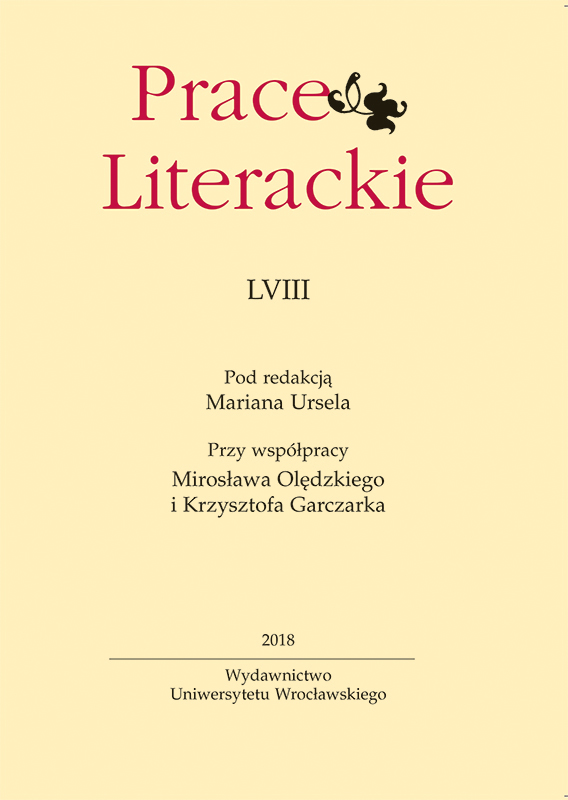Abstrakt
One is used to regarding Jan Parandowski (1895–1978) as a great connoisseur of the ancient world and a kind of “Olympic” writer with a distance to his own time and space. A thorough exam-ination of his literary essays, short stories and novels hardly proves this opinion. Treating Polish his-tory and culture, especially of the Renaissance epoch, as originating from and inspired by the ancient Roman/Greek tradition (“Poland is situated in the Mediterranean”), he conceals at the same time an evidently emotional approach to national legacy. There are several modes in which he evokes unique Polish history in the 19th century, with the great but problematic heritage of Romanticism as well as the controversial destiny of modern Polish artists obliged to fulfil national duties; he describes in classically discreet style Polish war experiences; he creates in different ways a sentimental image of his lost home country in Lwów. One of the clearest manifestos of the writer’s involvement in Polish identity can be also found in his defence of national sentiments and their qualities against the attitude presented in the famous work La Trahison des clercs (The treason of the intellectuals) by Julien Benda. According to Parandowski’s own declaration, his patriotism was responsive to aesthetic-al and sensory epiphany (geographical, landscape, etc. impressions) rather than to some abstract national symbols and declarations. There is also a close, mutual correspondence between ancient impulses in his work and his biography (Polish history); the writer has been frequently seeking for any consolation in Mediterranean utopian dimensions. Last but not least, the “postmortal” testimony of Polish identity in Parandowski’s biography and work seems to be related to the experience — for a long time unknown and only recently revealed — during his exile in revolutionary Soviet Russia; his pioneering study about “Bolshevism” documents the history of 20th-century totalitarianism and definitely denies the allegedly apolitical mind-set of the “Olympian.”
Słowa kluczowe:
Jan Parandowski, history, ancient tradition, Polish identity, Romanticism


